Digging up your roots
Society helps fill in your family tree, but you may not always like what you find
Advertisement
Read this article for free:
or
Already have an account? Log in here »
To continue reading, please subscribe:
Monthly Digital Subscription
$0 for the first 4 weeks*
- Enjoy unlimited reading on winnipegfreepress.com
- Read the E-Edition, our digital replica newspaper
- Access News Break, our award-winning app
- Play interactive puzzles
*No charge for 4 weeks then price increases to the regular rate of $19.00 plus GST every four weeks. Offer available to new and qualified returning subscribers only. Cancel any time.
Monthly Digital Subscription
$4.75/week*
- Enjoy unlimited reading on winnipegfreepress.com
- Read the E-Edition, our digital replica newspaper
- Access News Break, our award-winning app
- Play interactive puzzles
*Billed as $19 plus GST every four weeks. Cancel any time.
To continue reading, please subscribe:
Add Free Press access to your Brandon Sun subscription for only an additional
$1 for the first 4 weeks*
*Your next subscription payment will increase by $1.00 and you will be charged $16.99 plus GST for four weeks. After four weeks, your payment will increase to $23.99 plus GST every four weeks.
Read unlimited articles for free today:
or
Already have an account? Log in here »
Hey there, time traveller!
This article was published 16/02/2020 (2099 days ago), so information in it may no longer be current.
With a little research into his family history, Jim Rutherford discovered a close connection to the man celebrated this weekend as the Father of Manitoba.
Rutherford’s great-grandfather Thomas Ireland is listed in the same Settlers and Rebels North-West Mounted Police report to Parliament as Louis Riel.
“It was just stunning to me when I happened to see Louis Riel’s name above my grandfather’s name,” explains the 86-year-old Rutherford, about the report, dated 1882-1885.
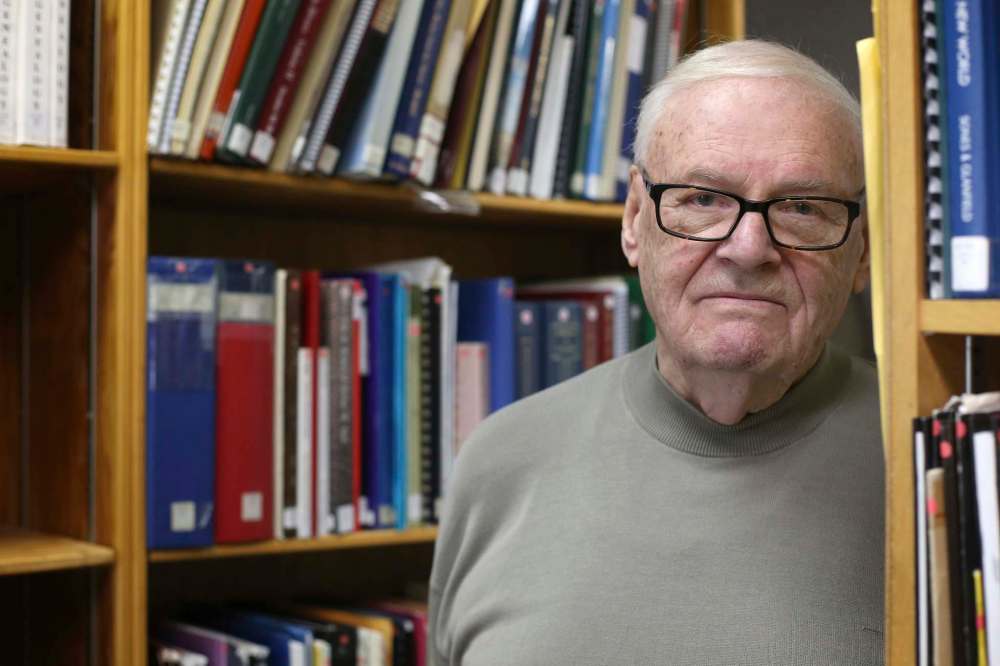
Riel was sentenced to death for high treason on May 15, 1885,, and hanged in Regina on Nov. 16 of the same year.
A brewer in Medicine Hat, Alta., Ireland was written up in the document several times for selling liquor, being drunk in public, firing a rifle in the street and assaulting his wife.
“I have stories about him and pictures of him and the brewery and pictures of my grandmother,” explains Rutherford, volunteer head of research for the Manitoba Genealogical Society.
He says delving into historical documents and records to discover a family history can uncover dramatic stories of the black sheep in the family, reveal unknown relatives or link to a solid trail of ordinary citizens dating back several generations.

“I have interesting relatives and some that aren’t interesting,” explains the Winnipeg Beach resident, who was aided in his research by a cousin who works at a university library.
Volunteers from the society assist people looking to find more about their past and make some connections in the future, explains Daryl Dumanski, publicity volunteer for the society.
“You have to beware,” she warns about a deep dive into historical records.
“Once you do it you might find stories you didn’t want to know.”
About 10 volunteers make up the society’s research team, helping people walking into their offices located in a strip mall on St. James Street, just north of Ellice Avenue. The office is open 10 a.m. to 3 p.m. three days a week.
Volunteers also fill requests from out-of-towners, offering up to six hours of research time for a modest $75.

Those search requests help people in other countries fill in the gaps in their family history, created when a family member emigrated to Canada and then subsequently lost touch with the relatives back home, says Rutherford.
“We’ve had some great letters back from people who are appreciative we found a big part of their family they didn’t know about,” he says of the searches, which sometimes involve half a dozen researchers.
Tracing your past
The Manitoba Genealogical Society has branches in Brandon, Dauphin, Neepawa and Winnipeg. The Winnipeg office at Unit E, 1045 St. James St. is open 10 a.m. to 3 p.m. Tuesday, Wednesday and Thursday. For more information, check out http://mbgenealogy.com/
Membership costs $50 annually and includes access to the library/resource centre, online databases, including Manitoba Name Index or MANI for short, and sharing of knowledge, expertise and interests with other researchers.
After a recent request from Austria stumped him, Rutherford put out a call to all the regular Thursday volunteers to help solve the problem.
“Everybody pitched in and we all came up with the same answers and put it all together,” he says.
Although some requests require patience and a little ingenuity to fill, they also represent a welcome challenge for these history buffs, says Sheila Woods, a Thursday volunteer skilled at searching newspapers.
“When we’re doing a research project, we get interested in it and can’t put it down,” she says.
“Over the years you learn what sources are available.”
‘You have to beware,’ about a deep dive into historical records, ‘once you do it you might find stories you didn’t want to know’– Daryl Dumanski, publicity volunteer for the Manitoba Genealogical Society
Researchers scour criminal and court records, birth and death notices, cemetery lists, census information, telephone books, church records and newspapers, as well as databases such as ancestry.com and the society’s Manitoba Name Index.
The society’s 2,400-sq.-ft. office is equipped with a bank of computers for searching newspapers and databases, a microfiche reader, and a huge library filled with family and community history books, maps and Henderson Directories dating back to the late 19th century.
Henderson Directories list people by street name and occupation.
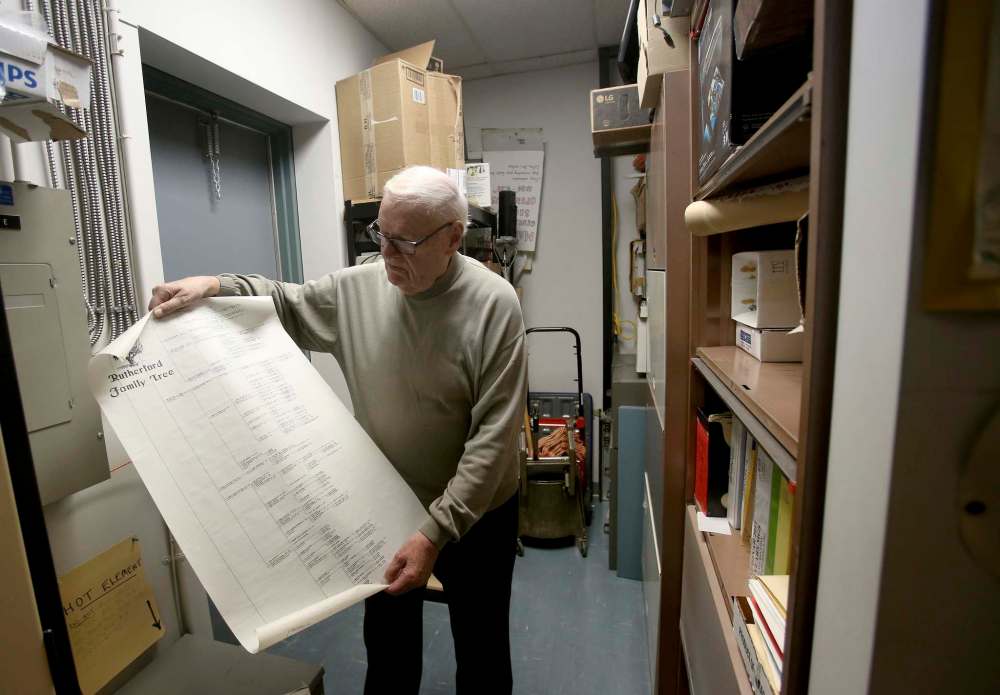
Dumanski says volunteers have different areas of expertise from years of researching their own family histories, but everyone shares the same passion for discovery.
“If you want to learn something, you volunteer for something,” explains the longtime member, who first got interested in her family history when her aunt left her boxes of photographs and genealogies.
That volunteer effort also builds the research team, as they solve historical mysteries together every Thursday, explains past president Gordon McBean.
“The days are very much a social experience because people look forward to getting together.”
“It’s nice to meet with other people who don’t think you’re crazy because you’re interested in genealogy,” adds Woods.
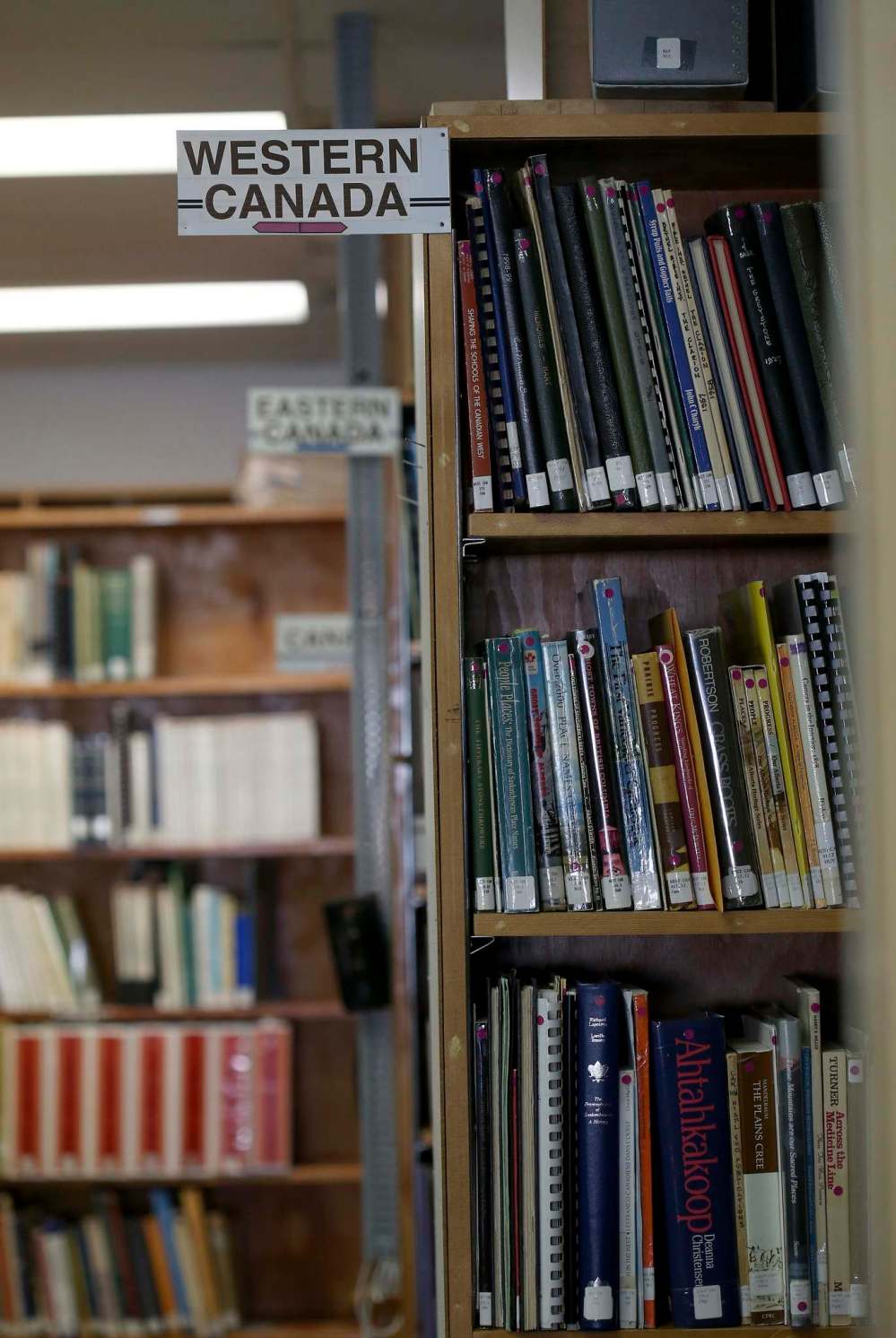
The documents may tell the facts, but it’s up to researchers to piece together the stories behind them, says Gordon,
For instance, he’s discovered that his great-grandmother was on the federal payroll as a laundress at Kingston Penitentiary.
“That’s the kind of detail you can drill down and find in the (federal government) reports,” he says.
“Everyone can create the skeleton of where someone was born but the real interesting thing is putting the meat on the bones of the stories and making them real.”
These stories also create links between living Manitobans and residents of the past, said Bonnie Batchelor, a 20-year volunteer with the society.
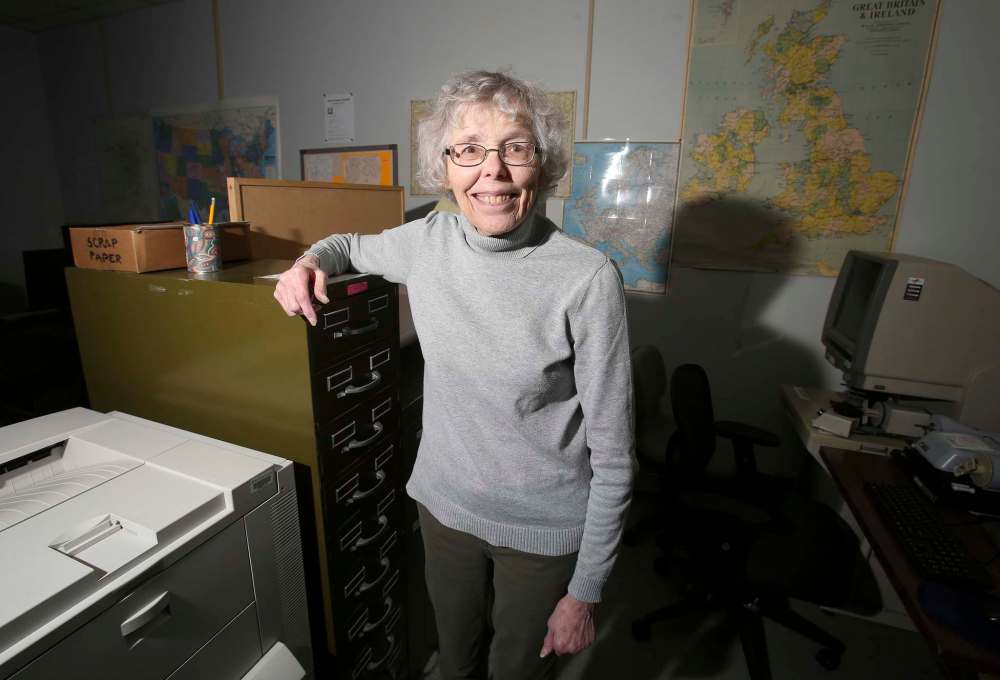
Recently her 11-year-old grandson caught the family history bug, asking Batchelor to research his family tree on his mother’s side. So she quietly began digging, resulting in a family history stretching back to mid 19th century England she presented to him last Christmas.
He was elated at the results, and Bachelor is equally pleased her grandson is interested in her passion.
“As a person interested in genealogy that thrilled my heart that we can pull someone else into our crazy world,” says Bachelor, 71.
“That’s always a concern of all of us: who will we give this too?”
Not only does a family history reveal the past, it can also answer current questions about medical history, physical traits or personality characteristics, says Dumanski.
That can lead to more existential questions as well, or unearth more family connections, she says.
“Why am I here right now and where do I come from?” she says of the reason for researching a family history.
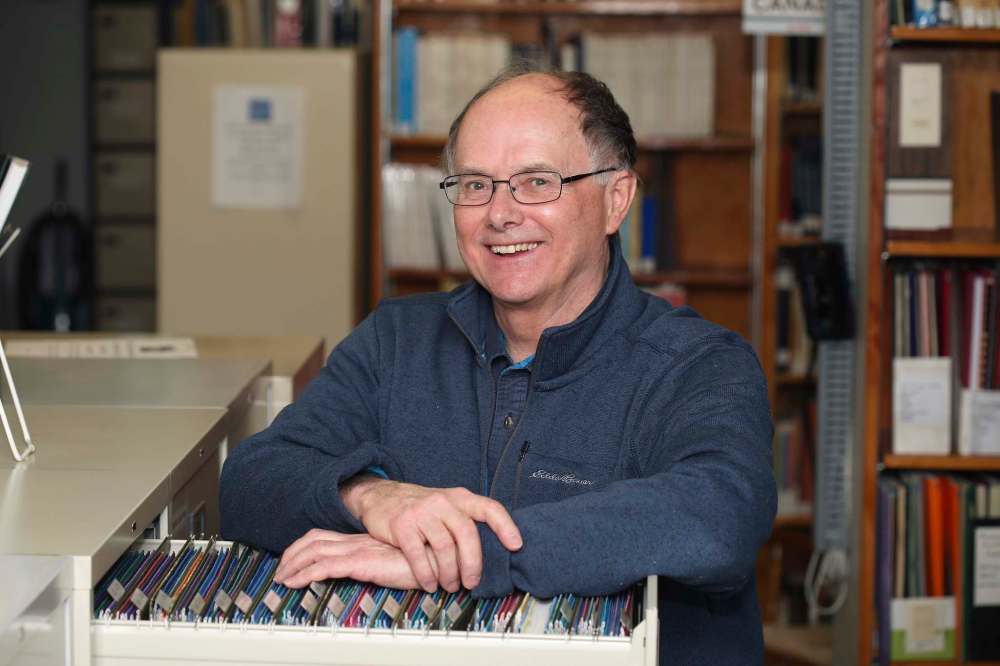
“Some people want the connection. Do I have second cousins or third cousins and fourth cousins?
For Rutherford, the stories of his grandfather Thomas Ireland link him to a significant figure in Manitoba’s history, as well as providing some great stories. Charged with multiple offences, Ireland avoided jail time and paid multiple fines for his offences. Rutherford suspects that leniency might stem from long-standing connections within the legal system.
“Thomas Tweed was the magistrate who fined him,” says Rutherford, referring to the MLA for Medicine Hat and member of the 1870 Red River Expedition with Garnet Wolseley.
“He was also one of his (Ireland’s) pallbearers.”
brenda@suderman.com
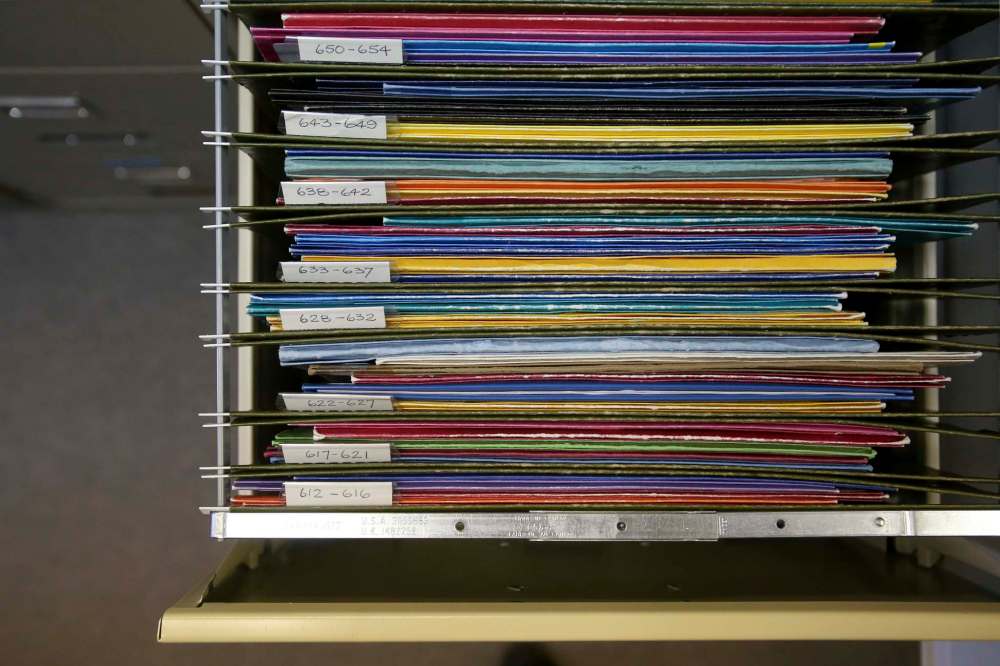
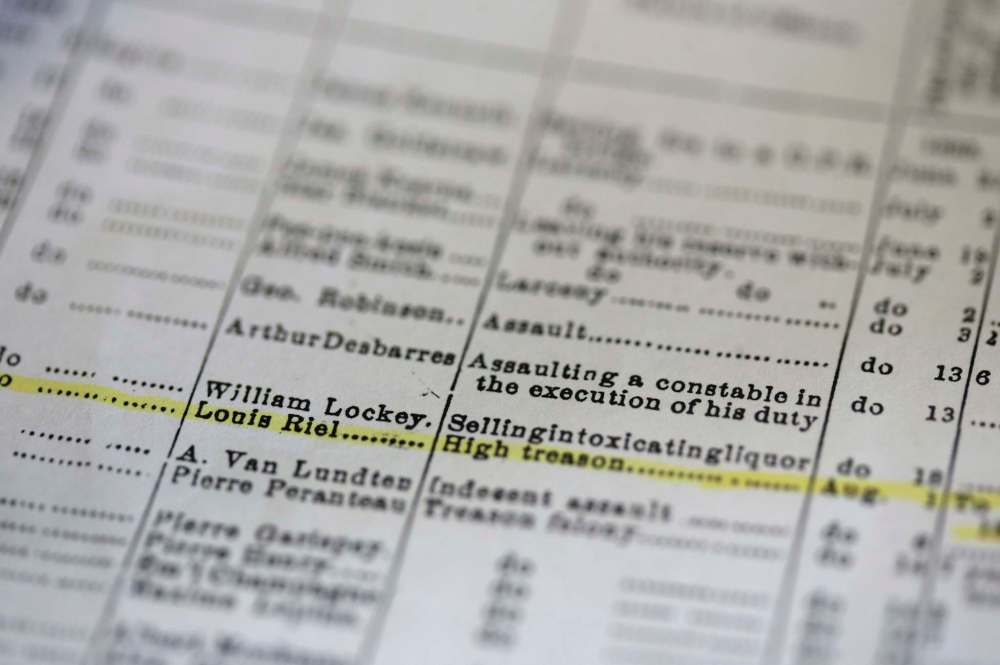
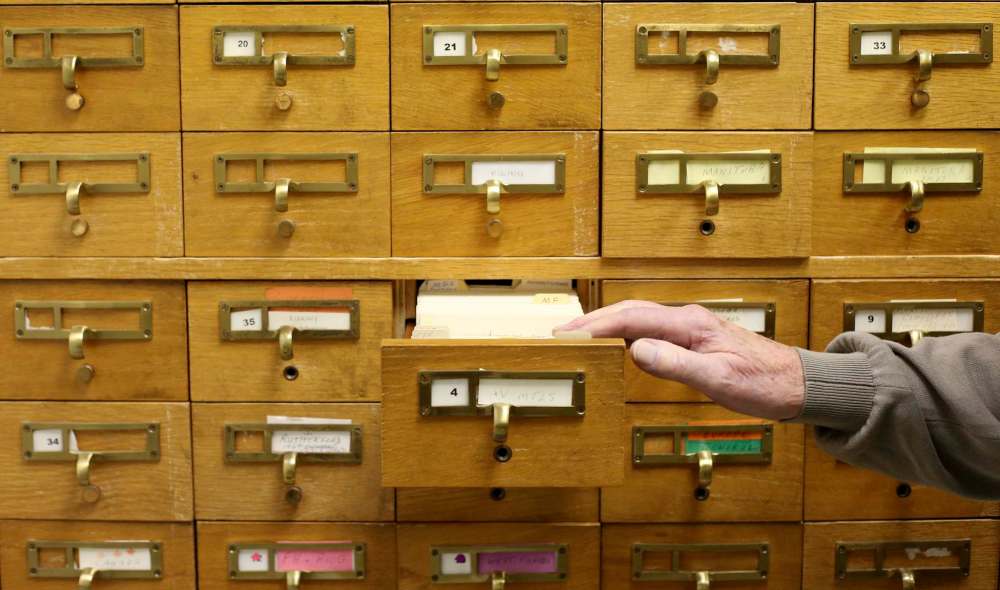

Brenda Suderman has been a columnist in the Saturday paper since 2000, first writing about family entertainment, and about faith and religion since 2006.
Our newsroom depends on a growing audience of readers to power our journalism. If you are not a paid reader, please consider becoming a subscriber.
Our newsroom depends on its audience of readers to power our journalism. Thank you for your support.

